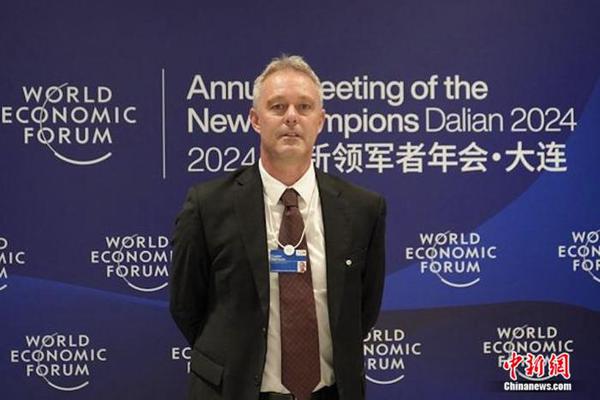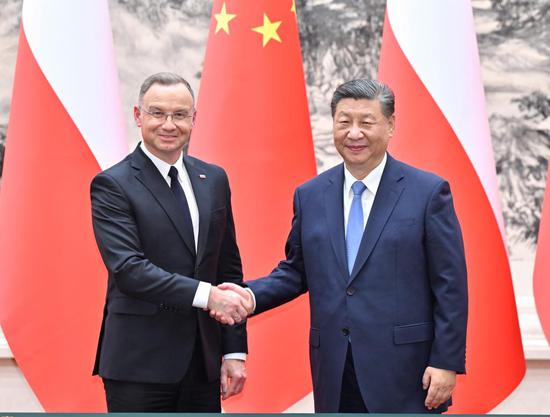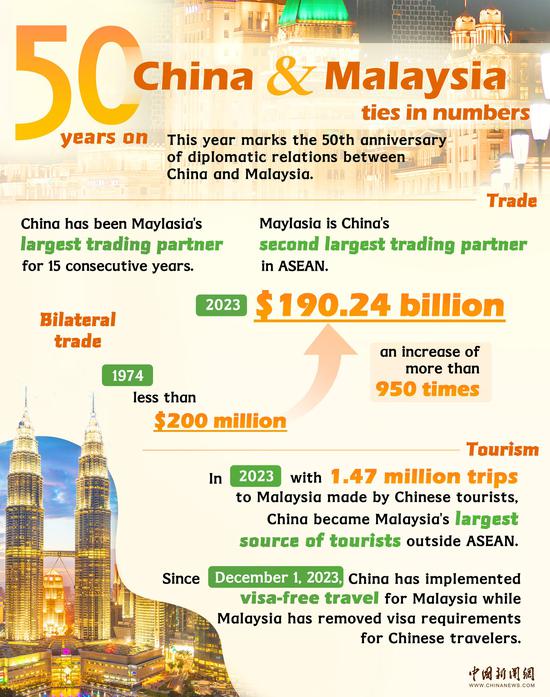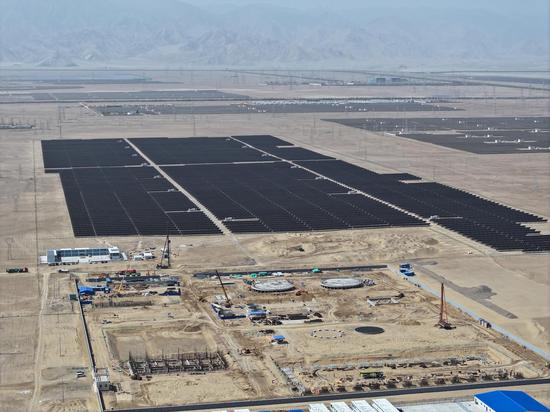By Chen Caixia
(ECNS)-- It’s exciting to see a lot of innovation coming out of China, said Espen Mehlum, Energy Transition Intelligence and Regional Acceleration, World Economic Forum (WEF), at the 2024 Summer Davos meeting in Dalian, Liaoning Province.

Mehlum noted that according to WEF's "Fostering Effective Energy Transition 2024" report, the Energy Transition Index (ETI), which benchmarks 120 countries on their energy system performance and transition readiness, ranks China 17th globally, best in Asia and better than the U.S.
“China's improvements over many years are due to, first of all, the good planning. Its Five-Year Plans have played a very important role in supporting this. There are policies supporting the growth and development in solar and wind energy, battery storage, immobility, and many other areas. This has benefited China in several ways,” said Mehlum.
He noted that China’s energy transition created around 2 million green jobs in the energy sector between 2019 and 2022. Secondly, it helped the country decarbonize and reduce the carbon intensity to address climate change both domestically and globally. Thirdly, it also helped consumers worldwide benefit from some of these technologies at a reasonable cost. “All progress in China has been important for the country and the world,” Mehlum said.
He stressed that the global energy market, supply chains, technology value chains and even the infrastructure are interconnected. "So, cooperation is much needed. Open trade is beneficial for everybody. Trade war doesn’t benefit anybody. And meanwhile, it's important to recognize that many nations would like to create competitive edge and green jobs in their economies to achieve win-win.”
“In the longer term, there is a need for much more clean technologies, solar, wind, nuclear, green hydrogen, battery storage, and carbon capture. And there will be a race to get there. I hope different nations can have a healthy competition to take their share of this clean technology and opportunity,” said Mehlum.
He illustrated that the world needs much more clean electricity because today the world energy system is based 23 percent on electricity and 77 percent on fuels. This requires good policy measures to help energy transition, such as carbon pricing and carbon market mechanisms.
Mehlum especially praises China’s large-scale carbon market. “It is very important to be able to stimulate uptake of renewable things, like renewable auctions that many countries have adopted, which is a very efficient tool to advance progress on climate goals,” he said.
The energy expert emphasized that in recent years, the world has seen a renaissance of interest in nuclear energy and some countries including the U.S. and France are investing in renewable, small modular reactors (SMRs). It’s important because SMRs are not as costly as traditional nuclear energy and don’t use much land or have waste issues.
“It would be fascinating to observe the next stage of innovation and investments in China's energy future, because that will be critically important for China and the world. A lot of innovation is coming out of China. It would also shape the global energy market. What happens in China will really influence the world as well,” concluded Mehlum.


















































 京公网安备 11010202009201号
京公网安备 11010202009201号